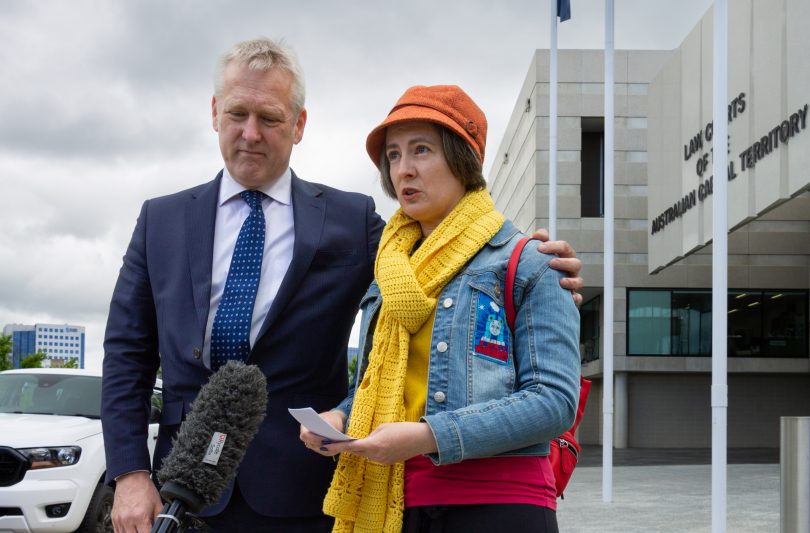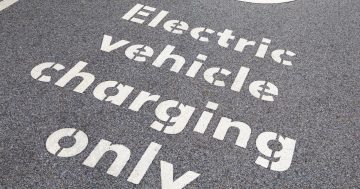
Blake Corney was “a beautiful, lively and intelligent little four-year-old boy with the world at his feet” until his life was tragically cut short in a car crash. Photo: Supplied.
Under proposed new legislation created in response to the death of Blake Corney, medical practitioners would be required to report patients with conditions that could affect their ability to drive to the Territory’s licensing authorities.
Minister for Transport and City Services Chris Steel said the government would propose legislation in response to the findings of a coronial inquest into Blake’s death.
Blake was in the car with his parents and younger brother in 2018 when a truck travelling at 70 km/h crashed into the back of the family’s car, which was stopped at an intersection.
His family survived but the four-year-old was killed.
The driver, Akis Emmanouel Livas, who pleaded guilty in the ACT Supreme Court and was jailed for at least two years and three months, was found to have had a possible diagnosis of sleep apnea dating from five years before Blake’s death.
He was later diagnosed with the condition in 2019.
However, when Mr Livas applied for his job in 2017 and then renewed his heavy vehicle driver’s licence in 2018, he did not declare any condition that could affect his driving ability.
A coronial inquest into Blake’s death last year highlighted how insufficient it was to rely on individuals self-reporting on road safety.
The inquest had recommended mandatory reporting of truck drivers with suspected health conditions and encouraged the government to expedite safer driving technologies including autonomous emergency braking (AEB).
It also recommended the government should mandate some independent health examinations for those applying for certain classes of a heavy vehicle licence.
Blake’s father Andrew Corney last year urged the ACT Government to adopt all the coroner’s recommendations “in a meaningful way, not just pay lip service”.
“Hopefully, this will help others not step into our shoes and go through the tragedy that really continues every day for our lives,” he said.
Mr Corney sat in the gallery as the proposed reforms were tabled in the ACT Legislative Assembly.
“Blake Corney was the innocent victim of an event that should never have happened,” Mr Steel said.
“Young Blake Corney’s life should never have been lost.
“Our work does not finish here and we will continue to relentlessly pursue road safety in the future.”

Andrew Corney and Camille Jago speak about the findings from the inquest into the death of their son Blake Corney. Photo: Albert McKnight.
Mr Steel said the proposed reforms would need to balance keeping people safe on the roads with the human right of respecting people’s privacy.
“We are considering how we can protect those required to make a report and preserve the trust that is an important part of the therapeutic relationship between a health practitioner and their patient,” Mr Steel said.
Other proposed reforms would mean autonomous emergency braking (AEB) and driver fatigue and distraction detection technologies (FDDT) would need to be included in any vehicle purchased by the ACT Government.
These technologies had been highlighted in the inquest’s findings.
Earlier this year, the Federal Government announced that AEB will be mandated for new heavy vehicles starting in 2023.
While Mr Steel welcomed this, he said he continued to be concerned about what he perceived as a lack of action on the part of the Federal Government.
“We are concerned that the Federal Government’s refusal to implement improved emissions standards for new vehicles including heavy vehicles means we are not getting the newest and safest vehicle technology sold in the Australian market,” he said.
Mr Steel said he would continue to advocate that the Commonwealth must align Australia with the latest standards and technologies in vehicle safety and emissions standards to prevent the country from “becoming a dumping ground for older, less-safe and more polluting vehicles”.


















